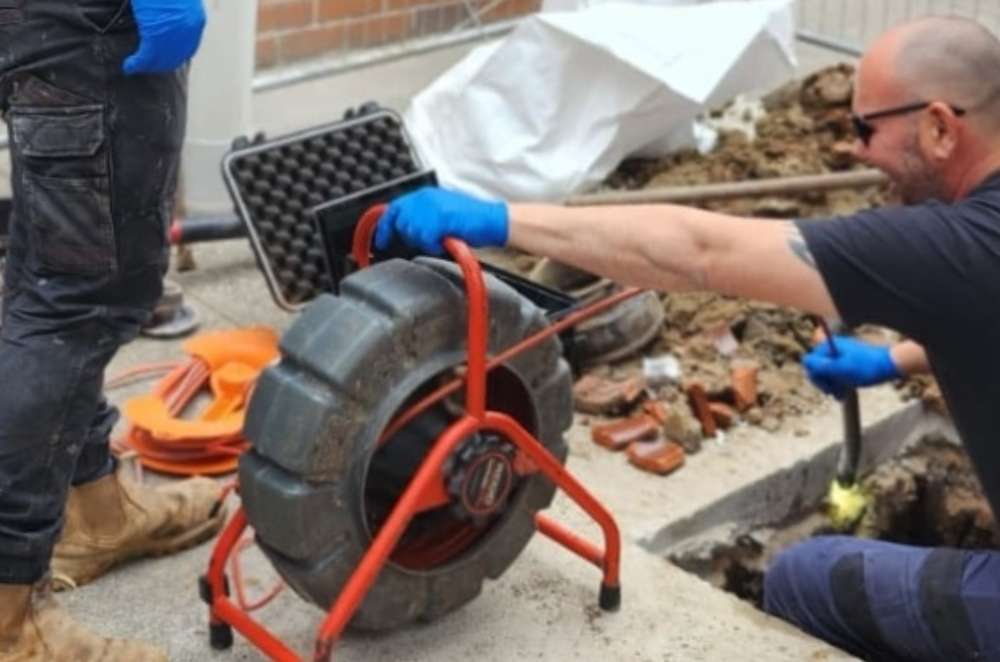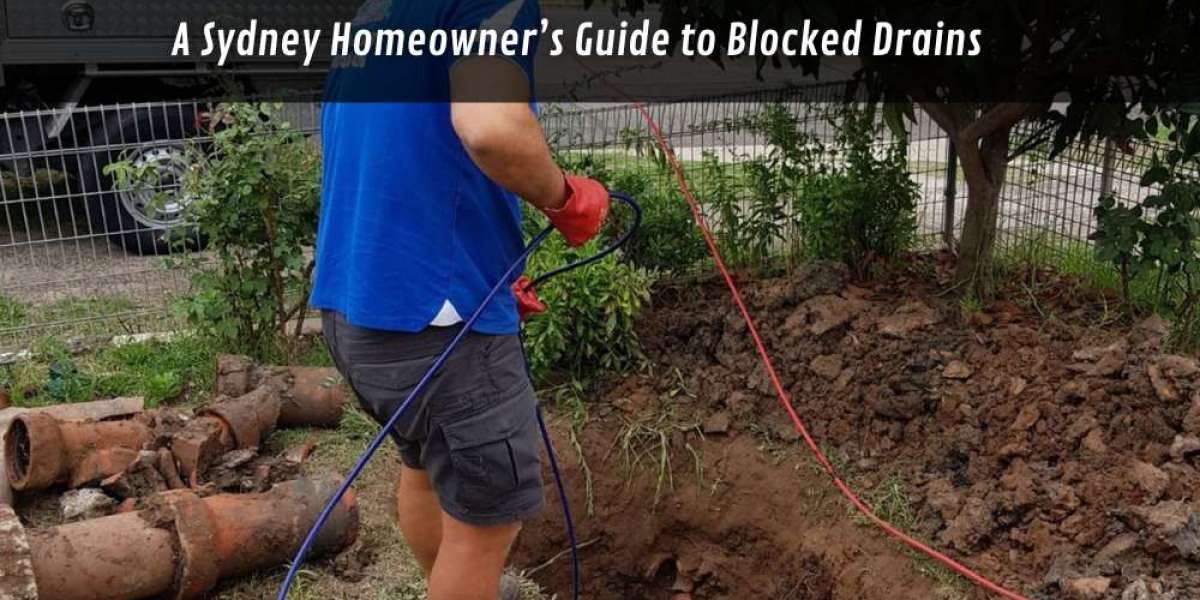There’s no faster way to ruin a weekend than discovering water pooling in your shower, or worse, raw sewage backing up in the backyard. If you’ve dealt with Sydney blocked drains, you know how quickly a small issue can escalate into property damage, health concerns, and a serious plumbing bill.
This guide walks you through everything from early warning signs to professional solutions, legal responsibilities, and proven prevention tips, all tailored to Sydney homes and plumbing systems.
Why are blocked drains so common in Sydney
Sydney’s combination of older suburbs, coastal terrain, clay soils, and leafy streets makes it one of the more complex environments for residential plumbing.
Blocked drains are often triggered by:
- Tree roots are infiltrating old earthenware pipes
- Wet wipes and hygiene items flushed down toilets
- Kitchen grease and food scraps are accumulating in pipes
- Poor stormwater diversion in properties with sloped blocks
- Flash flooding in the suburbs with dated infrastructure
If you live in areas like the Inner West, Northern Beaches, or the Hills District, chances are your plumbing has already been tested by these conditions.
How to know you’ve got a blockage
Some blocked drains happen suddenly — a total overflow, or water refusing to drain. But most build up slowly, giving subtle clues along the way.
Here are the early warning signs:
- Gurgling sounds from sinks or bathtubs
- Slow drainage in laundry, bathroom, or kitchen areas
- Foul odours, especially around outdoor gully traps
- Wet patches on the lawn with no rain
- Water is bubbling in the toilet when other taps are turned on, running
Learning to recognise these signs early could save you thousands. Not sure what you’re hearing or smelling? A post on the signs of a blocked drain is a great place to start.
A real example: Marrickville kitchen disaster
One Friday morning, we got an emergency call from a family in Marrickville. The kitchen sink was gurgling, and the dishwasher had overflowed. They thought it was just a clogged trap.
When we arrived, we found wastewater bubbling out of the overflow vent and pooling beneath the floating floors. Our inspection showed a partial root blockage 9 metres into the main sewer line. Grease and food scraps had caught on the roots, forming a near-complete blockage.
We cleared it with a jetter, recorded a full CCTV scan, and ended up doing a pipe reline the following week. The earlier the call had come in, the easier — and cheaper — the fix would’ve been.
How pros actually clear blocked drains
Forget the coat hanger trick or supermarket drain bombs. Licensed plumbers in Sydney use a combination of high-tech tools and real experience to pinpoint and clear problems fast.
Common methods include:
- Jet blasting to cut through roots, grease, and debris
- Electric eels (cable machines) for hard blockages in older pipes
- CCTV camera inspections to see inside the system
- Pipe relining to reinforce damaged sections without digging
- Excavation and replacement for collapsed or back-pitched lines
Professionals also know how to safely access inspection points without damaging surfaces, which matters if you’ve got pavers, tiling, or landscaped areas.
The legal side: Wastewater and compliance
Most homeowners don’t realise they can be held legally responsible for drain failures. According to NSW guidelines, failure to maintain your system can result in environmental breaches, especially if sewage reaches gutters or waterways.
Understanding wastewater disposal regulations helps avoid fines and keeps your property compliant. Key rules include:
- You must repair private plumbing faults immediately
- You cannot allow wastewater to flow into stormwater drains
- You must not tamper with or bypass inspection points
- Plumbing must be carried out by a licensed professional
If there’s a reportable incident — like a sewage overflow into a neighbour’s yard — the council may require proof that you responded promptly and engaged a licensed plumber.
Prevention tips that work
Preventing blocked drains is about habits, not hacks. Here’s what plumbers wish every homeowner knew:
- Use a benchtop grease catcher instead of rinsing fat
- Flush hot water down kitchen sinks weekly
- Never flush wipes, even if labelled “flushable”
- Install mesh strainers to trap hair and debris in showers
- Keep trees at least 3m away from main sewer lines
- Get a CCTV scan every 3–5 years in older homes
Some plumbing companies offer maintenance programs or discounted annual checks, worth it for older homes or investment properties.
Who to call and when
Blocked drains usually start as small annoyances and escalate to emergencies. The sooner you call, the easier and cheaper it is to fix.
You need an emergency drain plumber when:
- There’s visible overflow from indoor or outdoor drains
- Multiple fixtures are affected simultaneously
- Water is backing up after rain
- You hear strange gurgling throughout the house
- DIY methods haven’t resolved it in 24 hours
The right plumber won’t just unblock the pipe — they’ll explain why it happened and help you stop it happening again.
What about recurring blockages?
If your drain blocks every six months, something structural is going on.
Common culprits include:
- Cracked or disjointed pipes
- Root regrowth through old fractures
- Backfall or poor slope in underground lines
- Grease build-up from repeated habits
- DIY repairs or non-compliant alterations
This post on the causes of recurring drain blockages outlines standard design and usage issues that lead to repeated trouble. Don’t just treat the symptoms, investigate the cause.
DIY vs pro: When it’s safe to try it yourself
Some minor drain issues can be handled DIY, but it depends on what’s causing the problem and where it’s located.
Safe DIY options:
- Plunging
- Boiling water, or bicarb and vinegar
- Physically removing hair from grates
- Cleaning U-bends under sinks
Avoid:
- Caustic chemical cleaners
- DIY snake tools without a camera
- Ignoring bubbling or gurgling
- Forcing pressure into multiple drains
DIY is okay for localised issues, but if it’s affecting more than one fixture — or smells like sewage — it’s time to call in a pro.
What a good plumbing response should look like
When you book a plumber for a drain issue, look for:
- Clear quoting before starting
- Use of CCTV with shared video (not just their word)
- Explanation of cause, not just symptom clearing
- Discussion of long-term solutions, like relining if needed
- Respect for your property — shoe covers, cleanup, no mess left behind
A good plumber won’t push unnecessary upgrades, but they also won’t walk away from a recurring issue without flagging it. Trust the ones who explain, not just “unblock and go.”

Final thoughts: Act early, save money
When it comes to blocked drains in Sydney, the earlier you act, the better the outcome. Whether it’s a slow gurgle or a full-blown overflow, don’t ignore the signs. A quick inspection could save you thousands in repairs and give you peace of mind, especially if you’re planning renovations, selling, or renting out your home.
More importantly, drain care is part of responsible homeownership. From staying compliant with local wastewater disposal regulations to protecting your investment, getting proactive about your plumbing pays off every time.


